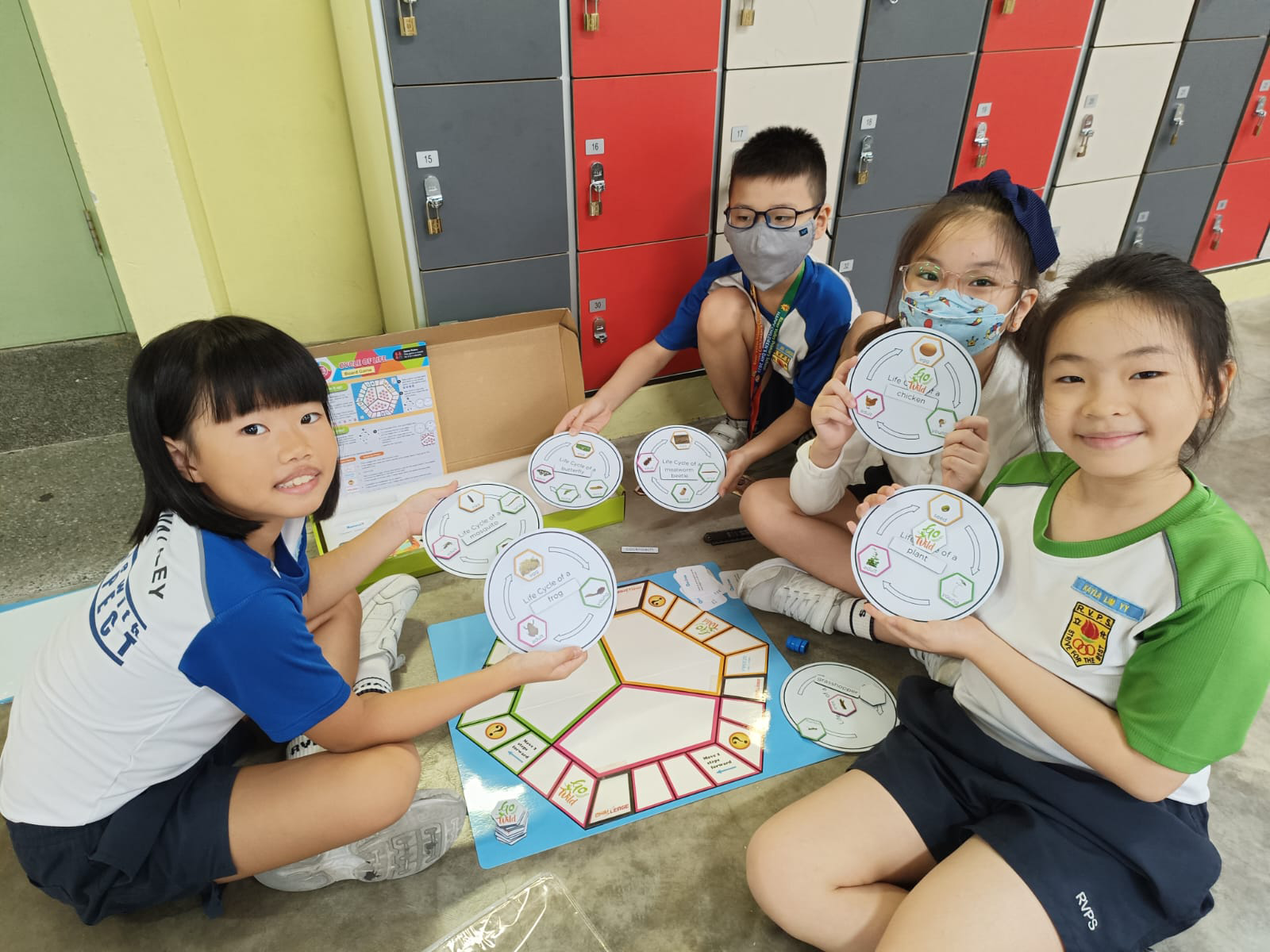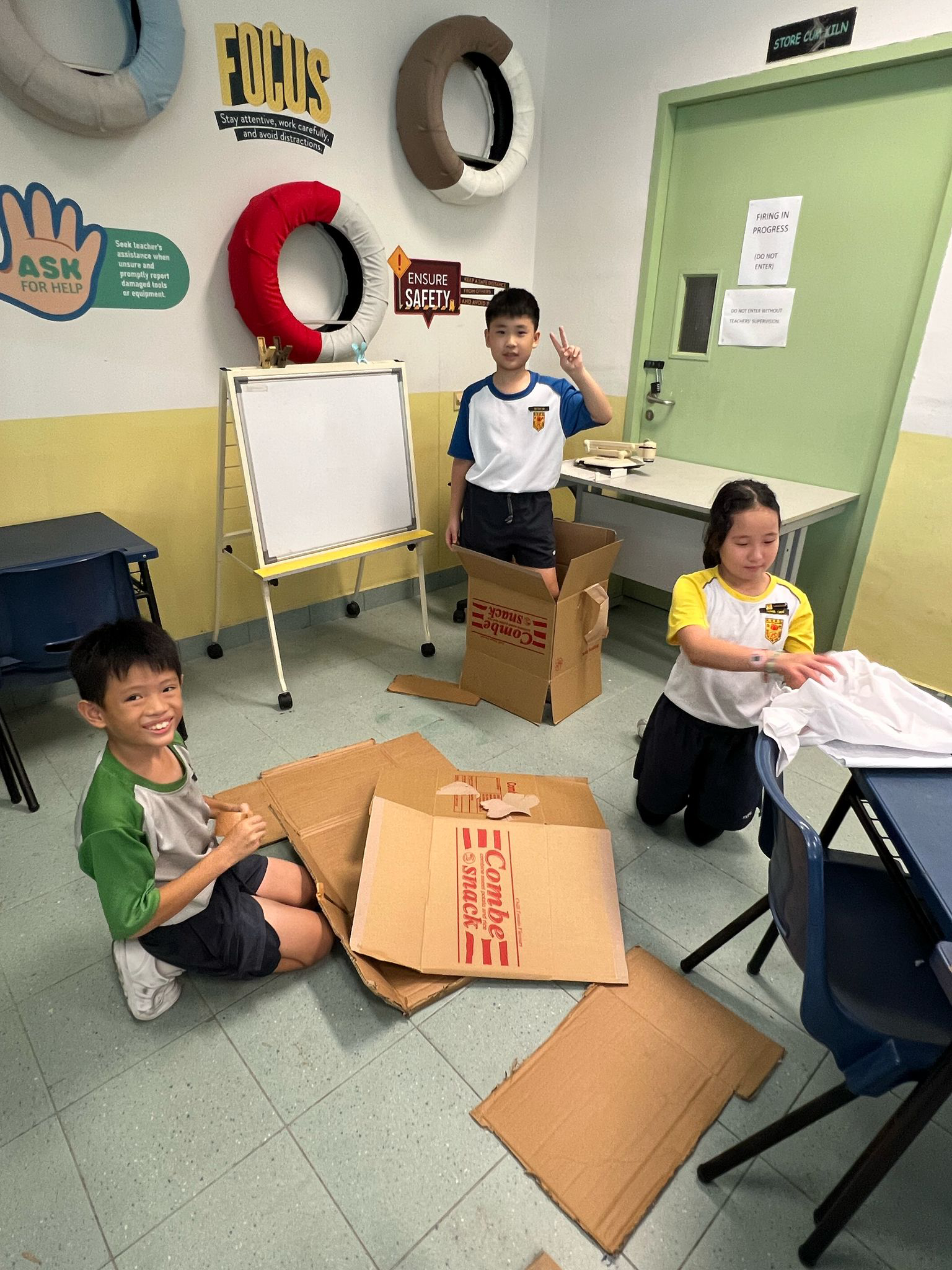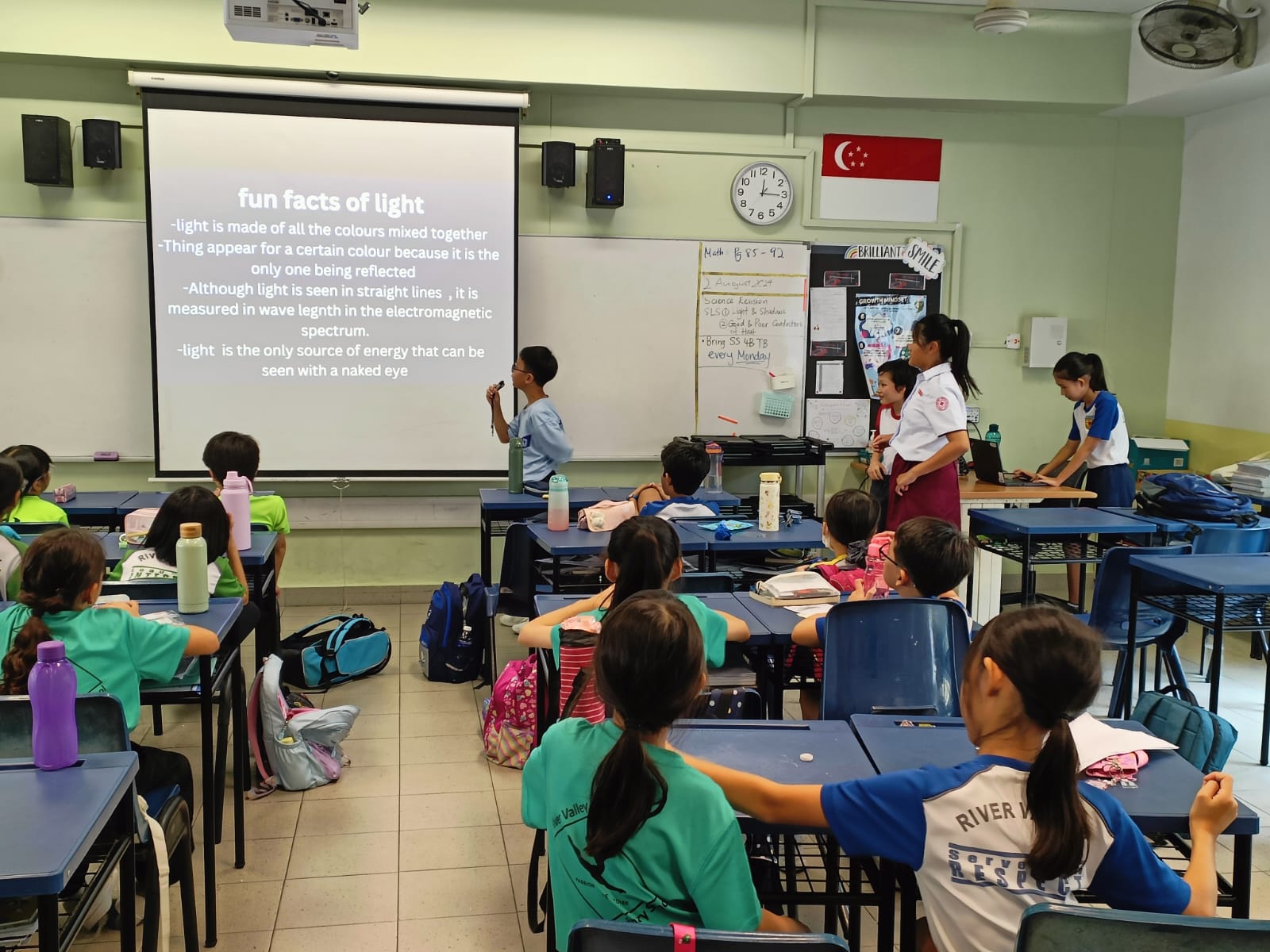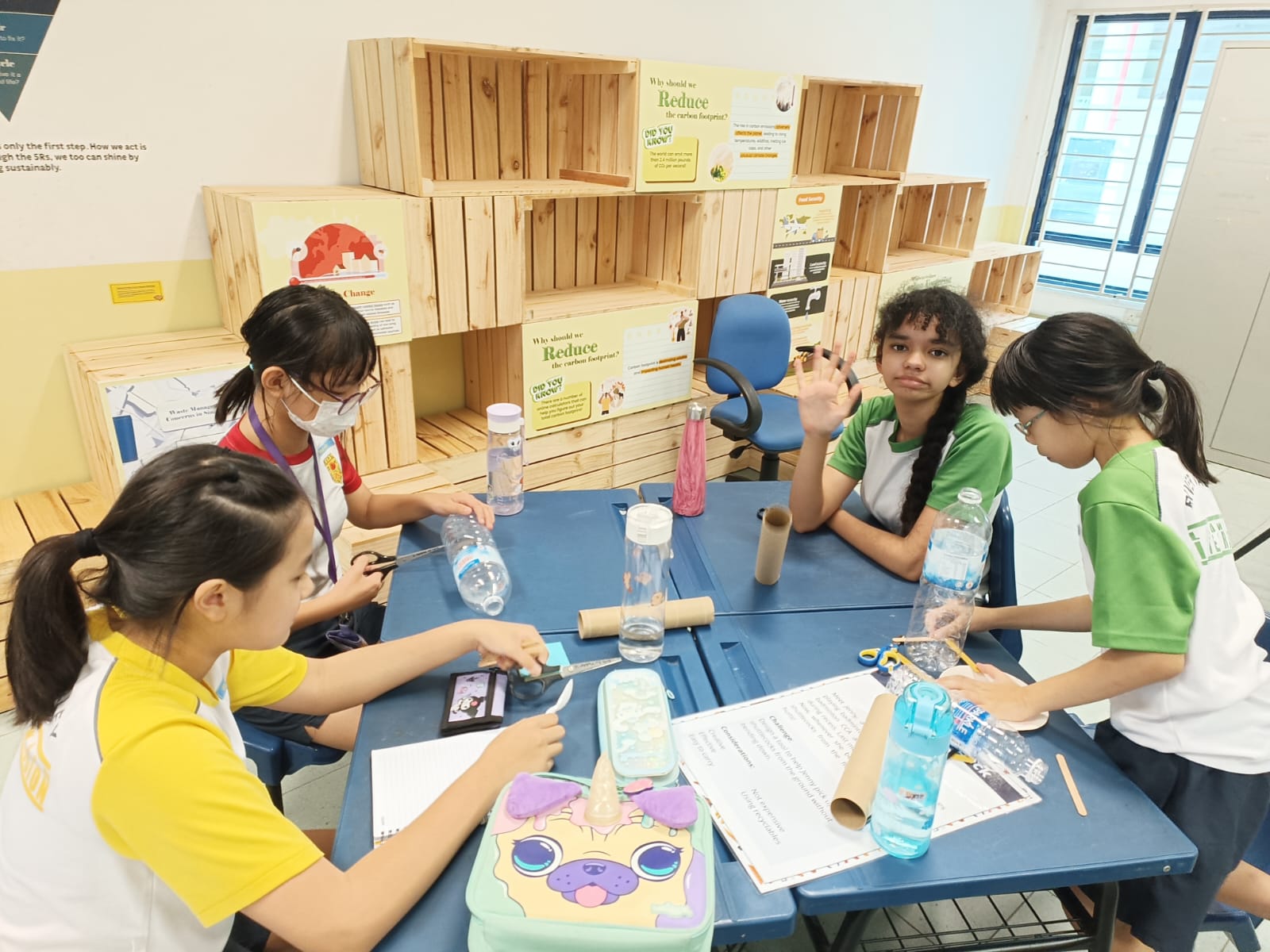Science
Department Vision
We nurture curious, self-regulated learners who think critically, communicate confidently, and apply scientific inquiry to explore the world and solve real-world problems.
Our curricular approach
We empower every student to explore, understand, and contribute meaningfully to the world through Science. Students learn Science based on five key themes that reflect real-world phenomena. These themes—Diversity, Cycles, Systems, Energy, and Interactions—span both life and physical sciences, offering a strong foundation for deeper learning. Our goal is to nurture every RVian to be curious, confident, and collaborative— equipped with the knowledge, skills, and values to explore the world like young scientists.
Inquiry-based Learning
Science is taught using an Inquiry-Based Learning (IBL) approach. Students learn through hands-on activities, discussions, and exploration, making Science fun, engaging, and meaningful. Using a spiral approach, key concepts and skills are revisited at deeper levels over time, supporting students’ thinking and long-term understanding. Guided by essential questions, students make connections across topics and develop critical thinking skills.

Talent Development Programmes
P5 E2K Science
Our E2K Science Programme for Primary 5 students is designed to ignite curiosity and inspire deeper scientific thinking through an inquiry-based learning approach. This enrichment programme provides opportunities for students to actively engage in hands-on investigations and explore advanced science concepts beyond the classroom curriculum. Through collaborative exploration and problem-solving, students develop essential 21st-century competencies such as critical and inventive thinking, as well as effective communication skills. Participation is by invitation, extended to students who demonstrate a strong aptitude and interest in Science. Selected students attend weekly 1.5-hour sessions over the course of 8 to 10 weeks.
P4 STEM (Math and Science)
Through a series of hands-on, student-led initiatives, our students apply Design Thinking to transform school green spaces into vibrant, sustainable environments. From crafting upcycled art installations and designing eco-friendly structures to curating themed gardens and developing educational eco-trails, students blend creativity with environmental consciousness. Workshops with industry experts, collaboration with artists and scientists, and real-world challenges empower them to innovate with purpose. Participation in this after school programme is by invitation and offered to students who demonstrate strong aptitude and interest in Mathematics and Science.

Every RVian a Leader
Science and Environment Advocates (SEAs)
As part of our commitment to nurturing confident and responsible leaders, our Every RVian a Leader programme empowers students to develop and refine their leadership skills through hands-on, meaningful experiences. Our SEAs work towards completing their Leadership Passports by taking on a variety of environmental and science-related responsibilities. These include presenting on science topics they are passionate about—encouraging curiosity, public speaking, and peer learning. They take ownership of maintaining their class’ Bloobox recycling system, promoting sustainability and environmental stewardship to their peers.

E.C.O. Spark Lab (Upcycling Makerspace)
At River Valley Primary School, the E.C.O. Spark Lab is more than just a creative corner—it's a testament to student voice, sustainability, and innovation in action. The makerspace was born out of a student-initiated project in 2024, sparked by the idea of transforming old school uniforms into useful items. With strong student advocacy, support from school leaders, and a partnership with The Circular Classroom, a dedicated space was created to support sustainable design and hands-on learning. Today, the E.C.O. Spark Lab is actively used for student-led upcycling projects and is integrated into the Science and Art curriculum—where students explore materials, environmental impact, and creative reuse. During recess, the space also hosts a vibrant student program where learners use recycled materials to design creative solutions to real-world sustainability challenges, applying critical, adaptive, and inventive thinking skills. It serves as a hub for innovation, community engagement, and a growing culture of sustainability across the school.


